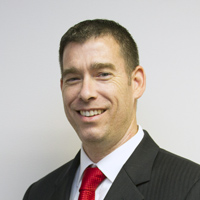What You Can Learn from Wealthy Investors
High-net-worth individuals may have more money to work with, but you can make the same money-smart moves, no matter your income.

Profit and prosper with the best of Kiplinger's advice on investing, taxes, retirement, personal finance and much more. Delivered daily. Enter your email in the box and click Sign Me Up.
You are now subscribed
Your newsletter sign-up was successful
Want to add more newsletters?

Delivered daily
Kiplinger Today
Profit and prosper with the best of Kiplinger's advice on investing, taxes, retirement, personal finance and much more delivered daily. Smart money moves start here.

Sent five days a week
Kiplinger A Step Ahead
Get practical help to make better financial decisions in your everyday life, from spending to savings on top deals.

Delivered daily
Kiplinger Closing Bell
Get today's biggest financial and investing headlines delivered to your inbox every day the U.S. stock market is open.

Sent twice a week
Kiplinger Adviser Intel
Financial pros across the country share best practices and fresh tactics to preserve and grow your wealth.

Delivered weekly
Kiplinger Tax Tips
Trim your federal and state tax bills with practical tax-planning and tax-cutting strategies.

Sent twice a week
Kiplinger Retirement Tips
Your twice-a-week guide to planning and enjoying a financially secure and richly rewarding retirement

Sent bimonthly.
Kiplinger Adviser Angle
Insights for advisers, wealth managers and other financial professionals.

Sent twice a week
Kiplinger Investing Weekly
Your twice-a-week roundup of promising stocks, funds, companies and industries you should consider, ones you should avoid, and why.

Sent weekly for six weeks
Kiplinger Invest for Retirement
Your step-by-step six-part series on how to invest for retirement, from devising a successful strategy to exactly which investments to choose.
Many people investing for the future—be it for retirement or to leave a legacy for their children—often look to the big-money folks to pick up tips on how to make their own investments lead to a greater net worth.
Though there may be differences in incomes between the haves and not-quite-haves—including how much each can afford to squirrel away each month—the basic goal remains the same: Maximize your earnings.
Known in financial circles as "high-net-worth clients," these folks really are no different than the rest of us, though they typically are defined as having a net worth of at least $1 million.
From just $107.88 $24.99 for Kiplinger Personal Finance
Become a smarter, better informed investor. Subscribe from just $107.88 $24.99, plus get up to 4 Special Issues

Sign up for Kiplinger’s Free Newsletters
Profit and prosper with the best of expert advice on investing, taxes, retirement, personal finance and more - straight to your e-mail.
Profit and prosper with the best of expert advice - straight to your e-mail.
How did they get to, and stay, where they are? Here are some common traits of high-net-worth clients:
They are very good savers—in fact, robust savers.
They don't fall into the trap of "keeping up with the Joneses" in today's high-consumption economy. This isn't easy to do, but it's absolutely key if you want to build and keep wealth, and not fritter it away. "Budget" is sometimes seen as a negative word, but spending plans are something that can be used advantageously, no matter what your net worth is.
They don't put everything in the public markets.
Studies have shown that these families begin to move away from traditional mutual funds and into more individual investments as their net worth increases. They also use private equity, real estate investment trusts, annuities and other alternative investments.
They develop and stick with a detailed plan that will help them reach their unique goals.
High-net-worth investors typically have a clear idea of their strategy, something that seems to be elusive for lower-end investors. The high-enders have figured out who they are and what they have to do to reach their goal. That, actually, is not a new idea.
In 1750, Benjamin Franklin said: "There are three things extremely hard: steel, a diamond, and to know oneself."
And in the world of investing, knowing yourself and recognizing that you are different from every other investor can be the difference between success and failure.
For example, you have a risk tolerance that's unique to you. You also have specific goals for five, 10, 15 years down the road and beyond. High-net-worth individuals refuse to be derailed by changes in the economy, job changes, life changes or whatever lies in wait out there. Investing with less than an 18- to 24-month timeframe and constantly watching the ups and downs of the market can lead to bad decisions and results in the frantic and flawed "buy-high-sell-low" effect.
They work with financial professionals.
A trusted adviser can steer you away from investments that don't match your risk tolerance and serve as a reminder of the ultimate goals of the strategy. Most high-net-worth families rely on the advice of a trusted financial adviser for a myriad of life's decisions—whether it's something as small as buying a car or as substantial as deciding when to retire and how to best start drawing income.
My experience has been that, no matter the net worth of a client, they all need the same things: a customized financial strategy, good investment direction and comprehensive planning in taxes, estate, charitable giving, legacy creation and so on.
See? You aren't so different after all.
Joe Berry is an Investment Adviser Representative with the Semmax Financial Group in North Carolina. He is a licensed insurance agent in both property/casualty and life and also has passed his Series 65 securities exam. Berry recently completed the Series 3 securities exam to become qualified as a commodity trading adviser.
Advisory services offered through Semmax Financial Advisors Inc., a Registered Investment Adviser. Registration does not imply any particular level of skill. Insurance products and services offered through Semmax Inc. Tax services offered through Semmax Tax Inc.
This material is for informational purposes only. It is not intended to provide any investment advice or provide the basis for any financial decisions. Please consult a qualified professional before making decisions about your financial situation.
Keith Morelli contributed to this article.
Profit and prosper with the best of Kiplinger's advice on investing, taxes, retirement, personal finance and much more. Delivered daily. Enter your email in the box and click Sign Me Up.

Joe Berry joined the Semmax Financial Group team after an 18-year career in management with a Fortune 500 company. Throughout his career, he has been involved in real estate, sales, insurance, training and management. He is a licensed insurance agent in both property/casualty and life and also has passed his Series 65 securities exam. Berry recently completed the Series 3 securities exam to become qualified as a commodity trading adviser.
-
 Over 65? Here's What the New $6K Senior Bonus Deduction Means for Medicare IRMAA
Over 65? Here's What the New $6K Senior Bonus Deduction Means for Medicare IRMAATax Breaks A new deduction for people over age 65 has some thinking about Medicare premiums and MAGI strategy.
-
 U.S. Congress to End Emergency Tax Bill Over $6,000 Senior Deduction and Tip, Overtime Tax Breaks in D.C.
U.S. Congress to End Emergency Tax Bill Over $6,000 Senior Deduction and Tip, Overtime Tax Breaks in D.C.Tax Law Here's how taxpayers can amend their already-filed income tax returns amid a potentially looming legal battle on Capitol Hill.
-
 5 Investing Rules You Can Steal From Millennials
5 Investing Rules You Can Steal From MillennialsMillennials are reshaping the investing landscape. See how the tech-savvy generation is approaching capital markets – and the strategies you can take from them.
-
 When Estate Plans Don't Include Tax Plans, All Bets Are Off: 2 Financial Advisers Explain Why
When Estate Plans Don't Include Tax Plans, All Bets Are Off: 2 Financial Advisers Explain WhyEstate plans aren't as effective as they can be if tax plans are considered separately. Here's what you stand to gain when the two strategies are aligned.
-
 Counting on Real Estate to Fund Your Retirement? Avoid These 3 Costly Mistakes
Counting on Real Estate to Fund Your Retirement? Avoid These 3 Costly MistakesThe keys to successful real estate planning for retirees: Stop thinking of property income as a reliable paycheck, start planning for tax consequences and structure your assets early to maintain flexibility.
-
 I'm a Financial Planner: These Small Money Habits Stick (and Now Is the Perfect Time to Adopt Them)
I'm a Financial Planner: These Small Money Habits Stick (and Now Is the Perfect Time to Adopt Them)February gets a bad rap for being the month when resolutions fade — in fact, it's the perfect time to reset and focus on small changes that actually pay off.
-
 Social Security Break-Even Math Is Helpful, But Don't Let It Dictate When You'll File
Social Security Break-Even Math Is Helpful, But Don't Let It Dictate When You'll FileYour Social Security break-even age tells you how long you'd need to live for delaying to pay off, but shouldn't be the sole basis for deciding when to claim.
-
 I'm an Opportunity Zone Pro: This Is How to Deliver Roth-Like Tax-Free Growth (Without Contribution Limits)
I'm an Opportunity Zone Pro: This Is How to Deliver Roth-Like Tax-Free Growth (Without Contribution Limits)Investors who combine Roth IRAs, the gold standard of tax-free savings, with qualified opportunity funds could enjoy decades of tax-free growth.
-
 One of the Most Powerful Wealth-Building Moves a Woman Can Make: A Midcareer Pivot
One of the Most Powerful Wealth-Building Moves a Woman Can Make: A Midcareer PivotIf it feels like you can't sustain what you're doing for the next 20 years, it's time for an honest look at what's draining you and what energizes you.
-
 I'm a Wealth Adviser Obsessed With Mahjong: Here Are 8 Ways It Can Teach Us How to Manage Our Money
I'm a Wealth Adviser Obsessed With Mahjong: Here Are 8 Ways It Can Teach Us How to Manage Our MoneyThis increasingly popular Chinese game can teach us not only how to help manage our money but also how important it is to connect with other people.
-
 Looking for a Financial Book That Won't Put Your Young Adult to Sleep? This One Makes 'Cents'
Looking for a Financial Book That Won't Put Your Young Adult to Sleep? This One Makes 'Cents'"Wealth Your Way" by Cosmo DeStefano offers a highly accessible guide for young adults and their parents on building wealth through simple, consistent habits.